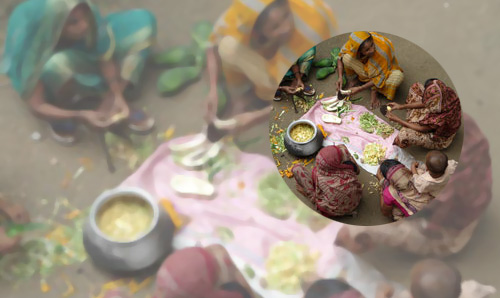National social protection strategies in Bangladesh
Working with policy makers and multilaterals to create effective social safety nets and ladders out of poverty.
The challenge

Effective social protection policies reduce poverty directly. Since the 1970s, Bangladesh’s social safety net has been clustered around themes of food rations and post-disaster relief but with evolving needs and understandings of social and economic development, the country has been left with a fragmented implementation strategy.
To enable Bangladesh to continue to move out of poverty, a strategic vision for social protection is needed at a national level so that current interventions are made more effective and new approaches are introduced to deal with emerging problems.
The impact
In Bangladesh the UNDP enlisted GDI to support the Government of Bangladesh in reforming and reorganizing the existing social protection system.
- We convened an international conference with Bangladeshi partners. This ensured the participation of the Bangladesh Prime Minister, who publicly committed to improve social protection policy and set up Cabinet sub-committees.
- We arranged visits between those working on social protection in Bangladesh (at permanent secretary level) to meet with counterparts working on successful schemes in Brazil (Bolsa Familia) and South Africa (Child Support Grants). As a result, we raised the aspirations of Bangladeshi policy makers with technical ideas about the design and delivery of social protection, such as the introduction of identity cards and linking ID cards to social protection payments.
- We edited a book of our research on social protection. At a post-election book launch in April 2014 the new Minister of Planning committed the government to approving and implementing the National Social Protection Strategy.
- Our research informed the design and implementation of a DFID-funded programme for the chronically poor with research findings leading the Minister of Education to increase the size of the stipend by 40%.
- Professor David Hulme’s research has been key to the Bangladeshi NGO BRAC (assisting 126 million people) in the formulation of its strategies.
The Identity Card process is now underway, knowledge is informing budgeting processes and senior civil servants are committed to reform.
We remain in regular contact with the partners mentioned above in addition to AusAid and the World Food Programme. We continue to support the effectiveness of social protection policies.
Our research
Our main contributions were in three different areas. These involved primary research, syntheses of existing research and political economic analysis.
1. What is known about the effectiveness of Bangladesh’s SSNs?
We reviewed the history, context and current situation of Bangladesh’s social protection systems and supported national colleagues in producing reports summarising this knowledge.
2. How does social protection fit into the political economy of Bangladesh?
We produced a study of the economic, social and political forces that shape social protection policy and delivery in the country. This helped the development partners (aid agencies) get approval for investments in social protection (especially to finance study tours by senior administrators to Brazil and South Africa and to mount technical training programmes in Dhaka) and revealed the potential for a political coalition for change to be assembled.
3. What international experiences could usefully inform the NSPS?
We reviewed international experience (building on our previous research) and identified a number of areas in which Bangladeshi partners might gain useful knowledge.
The findings of our research were converted into action by formal processes (donor financed technical assistance to the government, especially the National Planning Commission, workshops, conferences and consultant reports) and informal processes (discussions over cups of tea with Ministers and Secretaries and ‘brain-storming’ lunches with the Bangladeshi intelligentsia).
Key people
- Professor David Hulme (The University of Manchester)
- Hossain Zillur Rahman (Director, Power and Participation Research Centre)
- Professor Armando Barrientos (The University of Manchester)
- Mathilde Maitrot (GDI PhD student and post-doctoral researcher)
- Peter Ragno (GDI PhD student and post-doctoral researcher)
Further information
Read what the Bangladesh media had to say about our book on social protection:
How our work on cash transfers in the South has made a difference:
Follow David Hulme’s presentation launching the book on Bangladesh’s social protection:
